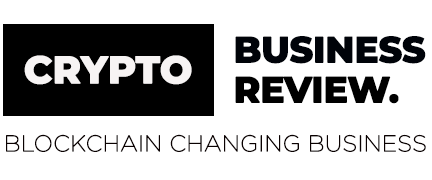EIN Newswire. Written by Ariel Shapira
It’s official: even the normies want a taste of bitcoin now. Just as the world’s largest cryptocurrency had settled into a relatively stable position, fluctuating between $8,000 and $12,000 for some time, the asset skyrocketed in value, starting in October 2020. In an economy devastated by Covid-19, the world started to open its eyes to the true potential of crypto as an alternative to fiat currencies. And with every bit of attention bitcoin gets, so does blockchain.
Over the last handful of years, blockchain has proven as a viable alternative to traditional centralized IT systems by being cost-effective and, in some cases, democratizing—giving the power back to the users rather than solely business owners. As ecosystems of their own variety thrive on blockchain technology, industries across the spectrum will begin adopting this technology.
Perhaps surprisingly—and perhaps not considering the need to bring fresh ideas to the big screen—the film industry is one of them. Blockchain might just be film’s golden ticket to fostering cultural diversity and bringing about more consumer inclusivity.
A history of exclusivity
If there was ever an industry that’s exclusive in the world, it’s Hollywood. Creators all over the world aspiring to get into the film industry who do not have the most important of connections are reputed to face uphill battles to get in or to get the funding to produce a film. We sometimes hear about the odd journeyman who produces such a masterpiece that he or she gains access to the club. More often, we hear about starving artists working odd jobs to make ends meet.
More importantly, fans remain ever distant from the production process, sidelined to merely watching finished work that isn’t necessarily tailored to their tastes. The results show it, with an estimated 80 percent of films losing money. Yet investors pump millions into productions—dozens of unimaginative remakes, spin-offs, and star-studded flicks with poor plotlines and character development—only to see them flop. To be clear, artists should be left to their creative devices to produce masterpieces, without audiences intervening and dictating the final product.
That being said, the film industry is still a business, and audiences still have some role to play in understanding what kinds of films are of interest to the public. Creators might be reluctant to bestow the power of film green-lighting upon viewers, and skeptics might be inclined to believe audiences would opt for the lowest common denominator. But democratizing film would also enable creators, investors, and fans to have an open channel between each other and share ideas, all in a decentralized ledger.
Decentralized inclusion
Contrary to popular belief, blockchain isn’t just a set of digital train tracks for the locomotive that is bitcoin. Distributed ledger technology has the power to change how our financial ecosystem operates, with decentralized finance applications booming during the pandemic. Other companies have begun considering integrating blockchain technologies into their infrastructure. Markets and Markets predicts that the global blockchain market size will grow from $3 billion in 2020 to $39.7 billion by 2025.
Setting aside predictions and the business world, the film industry faces a unique opportunity with blockchain technology.
Breaking down the barriers of exclusivity in the film industry requires an approach that circumvents the traditional avenues of fundraising and reaches out directly to the viewer. By virtue of asking those buying tickets at the box office to green-light and fund a film, film creators are democratizing the industry and making it more inclusive, and taking the control out of the hands of the central powers of the film industry.
Blockchain, as a high-accessibility, community technology, is the tool that can help build the foundations for a democratized film industry. And the possibilities are endless. For funding films, investors could sell tokens, a popular type of instrument on blockchain used for securities and utilities to raise funds for a project and pay dividends to token buyers. Small companies are already offering these kinds of opportunities.
Two years ago, MovieCoin was founded as a project to finance films through token issuance. More recently, in mid-2020, the Litecoin Foundation produced a Johnny Knoxville horror film in an effort to promote using blockchain in the film industry to crowdfund films. These were pioneers in the movement to integrate blockchain into the film industry, but their systems were not entirely democratized. Now, a California-based project is building on the foundations of their contemporaries.
Filmio, Inc., a blockchain-based film project platform based in San Diego, allows film creators to upload their projects and market them to an audience that can vote on whether to green-light them, while investors can check fan engagement and decide if they’d like to invest in a project.
Such projects are only the beginning.
The world is joining the chain, block by block. It’s only a matter of time before the film industry gets there. When it does, there is a strong possibility we could see a much stronger and more successful industry.
Source: Entrepreneur.com






